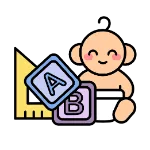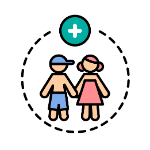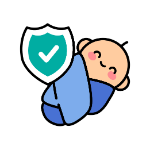
Expert Opinion On Autism
What Is Autism Spectrum Disorder? What Are The Symptoms That May Lead Him/she To Be Different From Other?
7 min | Updated on 30-03-2023 by HappyPreggie
Autism, often known as autism spectrum disorder (ASD), is a multi-factorial condition marked by difficulties with social skills, repetitive activities, speech, and nonverbal communication. We now know that there are several subtypes of autism, the majority of which are impacted by a mix of genetic and environmental variables.

(Q & A Expert Series With Mr. Julian Wong)
As autism is a spectrum condition, which means that each individual with autism has their own blend of strengths and problems. People with autism can learn, reason, and solve problems in a variety of ways, ranging from highly proficient to severely impaired. A person with ASD may require a great deal of assistance in their everyday lives, while others may require less assistance and, in some circumstances, live completely independently.
We understand that you might be wondering how to best aid your kid or be perplexed by contradictory treatment advice. Alternatively, you may have been informed that ASD is an incurable, lifelong disorder, making you fearful that nothing you do would help. To help you answer some of your common concerns about autism, in this Q & A expert session we have Mr. Julian Wong, Chairman of NASOM (National Autism Society of Malaysia). Thank you Mr. Julian for taking the time out for our readers.
My personal opinion on Autism is that it teaches you to learn how to be patient and calm. This is because most often one needs to repeat a few times for any instructions or messages to a person with Autism.

(Image credits to UCB)
As my son is on the spectrum and diagnosed with Asperger's, ever since then we have been on a continuous learning journey and trying to adapt to his pace and abilities. With a normal child, you may be able to raise your voice or scold to get a point through but with people with Autism, you need the patience to explain and show them what you try to tell them in the simplest way and as less complicated as possible.

(Image credits to Medical Xpress)
When my son was around 2 or 3 years old, we already noticed that there are some symptoms that may lead him to be different from his siblings or other children. That was way back in Kota Kinabalu, Sabah when we have yet to move to Kuala Lumpur. Assistance and services for Autism is almost next to none. Although most of his traits were pointing toward having Autism, we didn’t get it confirmed until we came to Kuala Lumpur in 2013, and was quickly diagnosed by a specialist to have Asperger. It wasn’t a shock to us because we already have the feeling he may have Autism and have started to manage it accordingly. The immediate response at that time was to find early intervention programs and other forms of services to assist in his development.

(Image credits to China Daily)
My son generally has no issues with communication with simple sentences and so forth hence we understand what he usually wants. Of course, in the earlier days, there were speech delays which led us to find answers for his condition. We have gotten him into various programs like speech therapy, and also an early intervention program at NASOM which have produced good results in his growth and development. He has since completed the early intervention program and is now attending formal education via homeschooling method.

(Image credits to NASOM)
You will be surprised at what I am about to tell you. Actually, I was the underdog in the election. I had no intention to run for office but a group of parents said that NASOM needed some change to bring it to greater heights and they nominated me. I said as long as you get the required votes to win, I will take up the challenge. Long story short, here I am helming the position and because I was entrusted with this heavy responsibility, I am determined to carry out the job with accountability and do whatever it takes to improve all aspects of NASOM internally and externally. There is lot to be done for NASOM, we just need great ideas from everyone like our board members, to plan and execute initiatives and ensure projects are successfully carried out.

(Image credits to NASOM)
At NASOM we have various services such as screening and diagnosis by our qualified senior psychologist, occupational therapy, early and intensive intervention programs, transitional and vocational programs. All these programs are carried out in our centres nationwide while screening and diagnosis are currently only available at our One Stop Centre at Setia Alam. There are plenty of success stories to list out but as a summary, we have students who have gone to mainstream school, colleges, and even graduated from universities. We take pride in the programs we offer and ensure that our teachers and staff are constantly being trained and skills updated and enhanced for the benefit of our students' development programs.
As NASOM is a non-profit organisation, we rely heavily on donations and contributions from various parties such as government, corporate and individuals. Most of our centres are funded through program fees which we try to maintain as low as possible as we want to ensure all walks of life, especially those B40 level so that the Autistic community get equal opportunity to access these developmental programs. We are open to anyone who is interested to collaborate with us to carry out certain projects, fundraising activities as well as Autism Awareness events.

(Image credits to Boston University)
I guess it varies from one parent to another parent. Some parents are heavily involved and accept that their children are on the spectrum, while some continue to be in denial even if they have confirmed it via diagnosis by professionals or medical specialists. Parents who accept quickly are able to provide early opportunities to the children to access developmental needs and the chances of them improving are much higher. While parents who are in denial and continue to delay looking for assistance or help for their children will cause the children to develop at a slower pace and show slower improvements.

(Image credits to Canva)
It may be right to say parents have limited or no knowledge but it is also not wrong to say that many parents are also in denial and refuse to accept that their children are different from others. This will prevent them from getting help early resulting in either late diagnosis or delay in finding assistance and programs for the children's developmental needs. This is a continuous education process to convince parents to accept and quickly find help or get their children diagnosed by a professional. Hence NASOM is always having Autism awareness events all year round and also collaborates with various parties in different locations to increase this awareness. Having said that, at the end of the day the ultimate decision and acceptance have to come from the parents themselves.

(Image credits to Canva)
Until today, there is no research that confirms the root cause of Autism. There are more and more children born with Autism nowadays probably because parents have more access to information and knowledge and they can use this knowledge to identify the symptoms that their children are displaying. Unfortunately, Autism is a lifelong disorder and there is no cure available but intervention programs will be able to help improve over time.

(Image credits to NASOM)
First of all, ultimately the parents need to accept that their children have Autism. Then they need to look for centres that offer programs for Autistic people. There are many out there, especially in Klang Valley and the fees are on a wide spectrum. Private centres will have hefty fees that many could not afford. Which is why NASOM is an organisation that offers assistance, especially those in the B40 category. Parents first need to get their child diagnosed and this can be done by a specialist at government or private hospitals, private practice clinics, and centres that offer Autism programs. Then only parents can find suitable programs or programs that are recommended by the specialist for the child to undertake.
Parents can contact NASOM if they are unsure where else to find help and NASOM can assist by providing advice and support.
We hope you got some insights into what autism is and how NASOM contributes towards this. Did this Q & A Expert series help answer some of the concerns you had? What other questions do you have? Let us know, and we will help you find the answers. Your questions may even be featured in our future Q & A series blog.
In the meantime, to know about the common doubts on pantang care you can read- Q&A With Expert Series: Get Your Answers On The Common Doubts For Pantang Care or to know about your baby crying pattern and what to assume you can read- Q&A With Expert Series: Get The Help You Need For Your Cry Baby From The Baby Cry Consultant.
(Q & A Expert Series With Mr. Julian Wong)
As autism is a spectrum condition, which means that each individual with autism has their own blend of strengths and problems. People with autism can learn, reason, and solve problems in a variety of ways, ranging from highly proficient to severely impaired. A person with ASD may require a great deal of assistance in their everyday lives, while others may require less assistance and, in some circumstances, live completely independently.
We understand that you might be wondering how to best aid your kid or be perplexed by contradictory treatment advice. Alternatively, you may have been informed that ASD is an incurable, lifelong disorder, making you fearful that nothing you do would help. To help you answer some of your common concerns about autism, in this Q & A expert session we have Mr. Julian Wong, Chairman of NASOM (National Autism Society of Malaysia). Thank you Mr. Julian for taking the time out for our readers.
Q1. What does autism mean to you? What’s your personal experience on this?
My personal opinion on Autism is that it teaches you to learn how to be patient and calm. This is because most often one needs to repeat a few times for any instructions or messages to a person with Autism.
(Image credits to UCB)
As my son is on the spectrum and diagnosed with Asperger's, ever since then we have been on a continuous learning journey and trying to adapt to his pace and abilities. With a normal child, you may be able to raise your voice or scold to get a point through but with people with Autism, you need the patience to explain and show them what you try to tell them in the simplest way and as less complicated as possible.
Q2. What was your response to your child's diagnosis?
(Image credits to Medical Xpress)
When my son was around 2 or 3 years old, we already noticed that there are some symptoms that may lead him to be different from his siblings or other children. That was way back in Kota Kinabalu, Sabah when we have yet to move to Kuala Lumpur. Assistance and services for Autism is almost next to none. Although most of his traits were pointing toward having Autism, we didn’t get it confirmed until we came to Kuala Lumpur in 2013, and was quickly diagnosed by a specialist to have Asperger. It wasn’t a shock to us because we already have the feeling he may have Autism and have started to manage it accordingly. The immediate response at that time was to find early intervention programs and other forms of services to assist in his development.
Q3. How does your child communicate with you and what were some of the programmes or support that encouraged him/her to grow and develop?
(Image credits to China Daily)
My son generally has no issues with communication with simple sentences and so forth hence we understand what he usually wants. Of course, in the earlier days, there were speech delays which led us to find answers for his condition. We have gotten him into various programs like speech therapy, and also an early intervention program at NASOM which have produced good results in his growth and development. He has since completed the early intervention program and is now attending formal education via homeschooling method.
Q4. What inspired you to take on this important role as the Chairman of NASOM?
(Image credits to NASOM)
You will be surprised at what I am about to tell you. Actually, I was the underdog in the election. I had no intention to run for office but a group of parents said that NASOM needed some change to bring it to greater heights and they nominated me. I said as long as you get the required votes to win, I will take up the challenge. Long story short, here I am helming the position and because I was entrusted with this heavy responsibility, I am determined to carry out the job with accountability and do whatever it takes to improve all aspects of NASOM internally and externally. There is lot to be done for NASOM, we just need great ideas from everyone like our board members, to plan and execute initiatives and ensure projects are successfully carried out.
Q5. Tell us about the services and programmes offered by NASOM to meet the needs of autistic children and how have you made a difference through these initiatives?
(Image credits to NASOM)
At NASOM we have various services such as screening and diagnosis by our qualified senior psychologist, occupational therapy, early and intensive intervention programs, transitional and vocational programs. All these programs are carried out in our centres nationwide while screening and diagnosis are currently only available at our One Stop Centre at Setia Alam. There are plenty of success stories to list out but as a summary, we have students who have gone to mainstream school, colleges, and even graduated from universities. We take pride in the programs we offer and ensure that our teachers and staff are constantly being trained and skills updated and enhanced for the benefit of our students' development programs.
Q6. How does NASOM sustain itself?
As NASOM is a non-profit organisation, we rely heavily on donations and contributions from various parties such as government, corporate and individuals. Most of our centres are funded through program fees which we try to maintain as low as possible as we want to ensure all walks of life, especially those B40 level so that the Autistic community get equal opportunity to access these developmental programs. We are open to anyone who is interested to collaborate with us to carry out certain projects, fundraising activities as well as Autism Awareness events.
Q7. What do you think of parental perceptions, attitudes and involvement when coming to know that their child was diagnosed with autism?
(Image credits to Boston University)
I guess it varies from one parent to another parent. Some parents are heavily involved and accept that their children are on the spectrum, while some continue to be in denial even if they have confirmed it via diagnosis by professionals or medical specialists. Parents who accept quickly are able to provide early opportunities to the children to access developmental needs and the chances of them improving are much higher. While parents who are in denial and continue to delay looking for assistance or help for their children will cause the children to develop at a slower pace and show slower improvements.
Q8. Many parents in Malaysia have limited or no knowledge about ASD (Autism Spectrum Disorder). This results in late diagnosis of autism among children. How can we raise autism awareness, especially among parents?
(Image credits to Canva)
It may be right to say parents have limited or no knowledge but it is also not wrong to say that many parents are also in denial and refuse to accept that their children are different from others. This will prevent them from getting help early resulting in either late diagnosis or delay in finding assistance and programs for the children's developmental needs. This is a continuous education process to convince parents to accept and quickly find help or get their children diagnosed by a professional. Hence NASOM is always having Autism awareness events all year round and also collaborates with various parties in different locations to increase this awareness. Having said that, at the end of the day the ultimate decision and acceptance have to come from the parents themselves.
Q9. Approximately, 9,000 children in Malaysia are born with autism every year and the numbers keep climbing. Why do you think this happens?
(Image credits to Canva)
Until today, there is no research that confirms the root cause of Autism. There are more and more children born with Autism nowadays probably because parents have more access to information and knowledge and they can use this knowledge to identify the symptoms that their children are displaying. Unfortunately, Autism is a lifelong disorder and there is no cure available but intervention programs will be able to help improve over time.
Q10. What advice would you offer to parents who have autistic children? Where and how should they seek help?
(Image credits to NASOM)
First of all, ultimately the parents need to accept that their children have Autism. Then they need to look for centres that offer programs for Autistic people. There are many out there, especially in Klang Valley and the fees are on a wide spectrum. Private centres will have hefty fees that many could not afford. Which is why NASOM is an organisation that offers assistance, especially those in the B40 category. Parents first need to get their child diagnosed and this can be done by a specialist at government or private hospitals, private practice clinics, and centres that offer Autism programs. Then only parents can find suitable programs or programs that are recommended by the specialist for the child to undertake.
Parents can contact NASOM if they are unsure where else to find help and NASOM can assist by providing advice and support.
We hope you got some insights into what autism is and how NASOM contributes towards this. Did this Q & A Expert series help answer some of the concerns you had? What other questions do you have? Let us know, and we will help you find the answers. Your questions may even be featured in our future Q & A series blog.
In the meantime, to know about the common doubts on pantang care you can read- Q&A With Expert Series: Get Your Answers On The Common Doubts For Pantang Care or to know about your baby crying pattern and what to assume you can read- Q&A With Expert Series: Get The Help You Need For Your Cry Baby From The Baby Cry Consultant.
Join the largest support network for family health and well-being. Ready to get started?
Get started
















